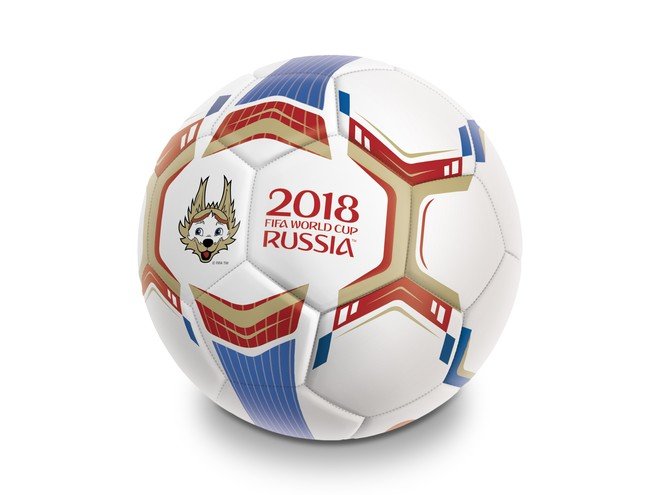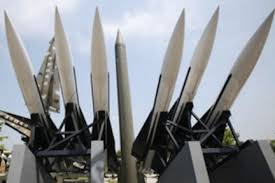The FIFA Confederations Cup that wrapped up in Russia on July 2 is Russia’s last rehearsal for its hosting of the 2018 FIFA World Cup. We can already see how different the tremendously expensive and highly publicized World Cup is going to be for Russia in comparison to the 2014 Sochi Olympics. The poor performance of the Russian national football team in the Confederations Cup leaves minimal chances for the Kremlin to turn the FIFA Cup into a Russian triumph. A major element that fermented national pride and glory heading into Sochi was revenge for the Russian fiasco in Vancouver. Neither the opening nor closing ceremonies of the Confederation Cup matched the epics of the Sochi performance. Even the final match between two best teams, Germany and Chile, saw only one-third of the stadium occupied.
Russia’s celebratory mood was spoiled by FIFA itself, Russia’s key international partner. On the eve of the Confederation Cup, FIFA officials made statements that were uncomfortable for the Kremlin, including that Russia used slave labor forces from North Korea for the construction of the stadium in St. Petersburg. In indirect response, Tatarstan’s “ambassador” to the Confederations Cup, Irek Zinnurov, praised the organizers of the event and mentioned that “Russia’s enemies, of course, will anyway find some fault of ours.” This rhetoric of enmity, inscribed into Russian sport discourses, is largely related to the fact that Russia is the first country to host a FIFA mega event while under severe international sanctions. This context of deteriorating relations between Russia and the West after Russia’s annexation of Crimea predetermined the political tone in many public pronouncements made by sport officials in Russia.
Russia won the medal count in the 2014 Winter Olympics. Yet the whole Sochi project, which was designed to celebrate the heyday of Russian soft power (Russia’s nodal points were its attraction, hospitality, and openness to the world) was challenged from three main perspectives immediately at the conclusion of the Games.
First, only months after the end of the Olympics, the event was mostly discussed not as an identity-shaping performance or soft power projection, but in terms of profligacy and resource reallocation. It is hard to find empirical evidence of the Sochi Olympics as a game-changer for Russia in the normative, institutional, or societal domains. What Sochi made clear is the persistence of corruption in Russia. The Sochi legacy of gross mismanagement was, in particular, duly reported by opposition leader Alexei Navalny. Complaints about the huge costs of the upcoming World Cup on local budgets have been voiced in the Russian host cities whose municipal and regional authorities have already had to re-prioritize and postpone the construction of medical and other important facilities.
Second, only a few weeks after the Sochi Games, Russia annexed Crimea, which undermined the myth of Russia’s preference for soft power in its foreign policies. The further instigation of militant separatism in Donbas and the consecutive economic sanctions imposed against Moscow by major Western countries seriously complicated preparations for the 2018 FIFA Cup.
Third, the doping scandal that erupted soon after Sochi not only placed Russia in the uncomfortable position of being a culprit, it led to the disqualification of a significant number of Russian athletes from the 2016 Rio Summer Olympics. The sanctions introduced by the International Olympic Committee, and the withdrawal of awarded Olympic medals, destroyed the myth of the Sochi Olympics as a glorious triumph of Russian sport. In its stead, the Russian government had to struggle just to participate in Rio, which drastically reduced Russia’s authority and respect in the international sports milieu.
Against this backdrop, instead of celebrating the success of Sochi (e.g., Russia’s medal count), the whole Russian athletic system found itself in a defensive position. The troubles augmented after the 2016 UEFA Cup in France when Russian football fans were implicated in acts of vandalism and violence that left dozens of British fans injured. The ensuing BBC documentary directly accused the Russian government of instigating football hooliganism as a Kremlin tool, one that the Kremlin might use in its struggle against Europe.
Russia’s reactions to the chain of negative publicity it received after Sochi were ambiguous. On the one hand, Russian officials, including President Putin, took the doping investigation and the allegations against Russian football hooligans seriously, and indicated a readiness to tackle them as issues of governance. The pressure from international sports bodies in this respect played a decisive role. For example, due to the doping disclosures, Russia lost its right to host the bobsleigh/skeleton world championship, which instigated discussions among observers about the probability of Russia divesting itself from the FIFA Cup.
As mentioned above, for some time the participation of Russia in the 2016 Rio Summer Games was under question. In this light, some Russian experts interpreted the Olympic Committee’s ultimate decision not to sanction the whole Russian national team as a bargaining chip to make the Russian government more compliant with World Anti-Doping Agency findings and for Russia to enforce anti-doping programs in the future. These expectations were reinforced by the wide acceptance of Russian government guilt in establishing the domestic system of doping. Many Russian experts admitted that the doping story revealed the failure of the whole system of Russian sport management, an allegation that Sport Minister Vitaly Mutko tried to debunk with conspiratorial explanations and by addressing the problem mainly from a technical perspective.
Initially, Putin accepted the validity of accusations of wrongdoing, but later he blamed international sports organizations of double standards and of discrimination against Russian athletes. However, such politicization had its limitations, mostly because “Russia’s enemies” tend to be abstract and ill defined. And, of course, it is not Russian ill-wishers but economic sanctions and corruption that were conducive to the gradual increase of the Sochi budget. One may conclude that instead of stimulating urban and regional development in Russia, the FIFA Cup will impede it.
Ultimately, the rethinking of the Sochi legacy in anticipation of the FIFA Cup brought to the fore of the debate the most substantial issues related to the role of the state in sports. In particular, the doping debate, for the first time, raised the issue of finding a balance between individual and collective responsibility, and discerning whether personal or nation-wide sanctions makes sense in cases of gross misbehavior and violation of competition rules.
Mega events give Russia the chance to positively promote and advertise itself around the world, but they also expose the least appealing features of Kremlin rule to global scrutiny—corruption, profligacy, mismanagement, and administrative opaqueness. It is these issues that will define the forthcoming discussions about the 2018 FIFA World Cup and its long-term effects on the Russian economy, society, and state.











